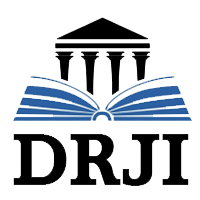Peran Dukungan Sosial dalam Memediasi Cognitive Reappraisal dan Resiliensi pada Dewasa Awal
Abstract
Early adulthood is considered one of life's most critical stages. This is because, during this stage, individuals will face a variety of life transitions, making the ability to recover and adapt to difficult situations essential. This term is known as resilience. This study explored the role of social support as a mediator in the relationship between cognitive reappraisal and resilience in young adults. A quantitative method with mediation analysis was used. The study involved 241 participants in early adulthood (18-30 years old) (M = 22.06). The results showed a positive relationship between the use of cognitive reappraisal and resilience (r = 0.802; p < .001). Furthermore, social support can mediate the relationship between the use of cognitive reappraisal and resilience (β = 0.598, p < .001). It can be concluded that strategy to increase resilience in young adults can be strengthened through the optimization of cognitive reappraisal and social support.
Dewasa awal merupakan salah satu tahapan yang dinilai cukup kritis. Hal ini dikarenakan pada tahap ini, individu akan menghadapi transisi kehidupan yang cukup beragam, sehingga kemampuan individu untuk bangkit dan adaptif dari keadaan sulit diperlukan pada tahapan ini. Istilah ini dikenal dengan nama resiliensi. Penelitian ini dilakukan untuk mengeksplorasi peran dukungan sosial sebagai mediator dalam hubungan cognitive reappraisal dengan resiliensi pada individu dewasa awal. Metode yang digunakan ialah metode kuantitatif dengan analisis mediasi. Penelitian ini melibatkan partisipan yang berada pada tahap dewasa awal (18 – 30 tahun) sejumlah 241 orang (M = 22,06). Hasil penelitian menunjukkan bahwa terdapat hubungan positif antara penggunaan cognitive reappraisal dan resiliensi (r = 0,802; p < .001). Selanjutnya, dukungan sosial dapat berperan dalam memediasi hubungan antara penggunaan cognitive reappraisal dan resiliensi (β = 0,598, p < .001). Dapat disimpulkan bahwa peningkatan resiliensi pada individu dewasa awal dapat diperkuat melalui optimalisasi penggunaan cognitive reappraisal dan dukungan sosial.
Keywords
Full Text:
PDFReferences
Abdul Aziz, N. A., Baharudin, N. S., & Alias, N. A. (2023). Association between Stress and Social Support Perceived among Undergraduate Health Sciences Student. Malaysian Journal of Medical Sciences, 30(3), 176–183. https://doi.org/10.21315/mjms2023.30.3.16
Alsubaie, M. M., Stain, H. J., Webster, L. A. D., & Wadman, R. (2019). The role of sources of social support on depression and quality of life for university students. International Journal of Adolescence and Youth, 24(4), 484–496. https://doi.org/10.1080/02673843.2019.1568887
Arifuddin A. Pasinringi, M., Vanessa, A. A., & Sandy, G. (2022). The Relationship Between Social Support and Mental Health Degrees in Emerging Adulthood of Students. Golden Ratio of Social Science and Education, 2(1), 12–23. https://doi.org/10.52970/grsse.v2i1.162
Arnett, J. J. (2000). Emerging adulthood: A theory of development from the late teens through the twenties. American Psychologist, 55(5), 469–480. https://doi.org/10.1037/0003-066X.55.5.469
Badan Kebijakan Pembangunan, & Kementerian Kesehatan. (2023). Survei Kesehatan Indonesia (SKI) 2023 Dalam Angka.
Bandura, A. (1977). Self-efficacy: Toward a unifying theory of behavioral change. Psychological Review, 84(2), 191–215. https://doi.org/10.1037/0033-295X.84.2.191
Bhattarai, M., Jin, Y., Smedema, S. M., Cadel, K. R., & Baniya, M. (2021). The relationships among self‐efficacy, social support, resilience, and subjective well‐being in persons with spinal cord injuries. Journal of Advanced Nursing, 77(1), 221–230. https://doi.org/10.1111/jan.14573
Campbell-Sills, L., Forde, D. R., & Stein, M. B. (2009). Demographic and childhood environmental predictors of resilience in a community sample. Journal of Psychiatric Research, 43(12), 1007–1012. https://doi.org/10.1016/j.jpsychires.2009.01.013
Cao, F., Li, J., Xin, W., & Cai, N. (2024). Impact of social support on the resilience of youth: mediating effects of coping styles. Frontiers in Public Health, 12. https://doi.org/10.3389/fpubh.2024.1331813
Cohen, S., & Wills, T. A. (1985). Stress, social support, and the buffering hypothesis. Psychological Bulletin, 98(2), 310–357. https://doi.org/10.1037/0033-2909.98.2.310
Copeland, W. E., Angold, A., Shanahan, L., & Costello, E. J. (2014). Longitudinal Patterns of Anxiety From Childhood to Adulthood: The Great Smoky Mountains Study. Journal of the American Academy of Child & Adolescent Psychiatry, 53(1), 21–33. https://doi.org/10.1016/j.jaac.2013.09.017
Cutuli, D. (2014). Cognitive reappraisal and expressive suppression strategies role in the emotion regulation: an overview on their modulatory effects and neural correlates. Frontiers in Systems Neuroscience, 8. https://doi.org/10.3389/fnsys.2014.00175
d’Arbeloff, T. C., Freedy, K. R., Knodt, A. R., Radtke, S. R., Brigidi, B. D., & Hariri, A. R. (2018). Emotion Regulation and the Experience of Future Negative Mood: The Importance of Assessing Social Support. Frontiers in Psychology, 9. https://doi.org/10.3389/fpsyg.2018.02287
Du, X., Zhou, M., Mao, Q., Luo, Y., & Chen, X. (2023). Positive aging: social support and social well-being in older adults-the serial mediation model of social comparison and cognitive reappraisal. Current Psychology, 42(26), 22429–22435. https://doi.org/10.1007/s12144-022-03219-3
Fonagy, P., Steele, M., Steele, H., Higgitt, A., & Target, M. (1994). The Emanuel Miller Memorial Lecture 1992 The Theory and Practice of Resilience. Journal of Child Psychology and Psychiatry, 35(2), 231–257. https://doi.org/10.1111/j.1469-7610.1994.tb01160.x
Galatzer-Levy, I. R., Burton, C. L., & Bonanno, G. A. (2012). Coping Flexibility, Potentially Traumatic Life Events, and Resilience: A Prospective Study of College Student Adjustment. Journal of Social and Clinical Psychology, 31(6), 542–567. https://doi.org/10.1521/jscp.2012.31.6.542
Gravetter, F. J., & Forzano, L.-A. B. (2011). Research Methods for The Behavioral Sciences 4. CENGAGE Learning Custom Publishing.
Gross, J. J. (1998). Antecedent- and response-focused emotion regulation: Divergent consequences for experience, expression, and physiology. Journal of Personality and Social Psychology, 74(1), 224–237. https://doi.org/10.1037/0022-3514.74.1.224
Gross, J. J., & John, O. P. (2003a). Individual differences in two emotion regulation processes: Implications for affect, relationships, and well-being. Journal of Personality and Social Psychology, 85(2), 348–362. https://doi.org/10.1037/0022-3514.85.2.348
Gross, J. J., & John, O. P. (2003b). Individual differences in two emotion regulation processes: Implications for affect, relationships, and well-being. Journal of Personality and Social Psychology, 85, 348–362.
Hadinata, C., & Sahrani, R. (2021). The Role of Perceived Social Support Towards Stress in Early Adulthood During Pandemic Covid-19.
Haines, S. J., Gleeson, J., Kuppens, P., Hollenstein, T., Ciarrochi, J., Labuschagne, I., Grace, C., & Koval, P. (2016). The Wisdom to Know the Difference. Psychological Science, 27(12), 1651–1659. https://doi.org/10.1177/0956797616669086
Han, F., Duan, R., Huang, B., & Wang, Q. (2023). Psychological resilience and cognitive reappraisal mediate the effects of coping style on the mental health of children. Frontiers in Psychology, 14. https://doi.org/10.3389/fpsyg.2023.1110642
Hefner, J., & Eisenberg, D. (2009). Social support and mental health among college students. American Journal of Orthopsychiatry, 79(4), 491–499. https://doi.org/10.1037/a0016918
Karadag, E., Ugur, O., Mert, H., & Erunal, M. (2019). The Relationship Between Psychological Resilience and Social Support Levels in Hemodialysis Patients. The Journal of Basic and Clinical Health Sciences, 3(1). https://doi.org/10.30621/jbachs.2019.469
King, G. A., & Rothstein, M. G. (2010). Resilience and Leadership: The self-management of failure. In Self-management and Leadership Development (pp. 361–394). Edward Elgar Publishing Limited.
Kuwabara, S. A., Van Voorhees, B. W., Gollan, J. K., & Alexander, G. C. (2007). A qualitative exploration of depression in emerging adulthood: disorder, development, and social context. General Hospital Psychiatry, 29(4), 317–324. https://doi.org/10.1016/j.genhosppsych.2007.04.001
Lau, E. Y. H., Chan, K. K. S., & Lam, C. B. (2018). Social Support and Adjustment Outcomes of First-Year University Students in Hong Kong: Self-Esteem as a Mediator. Journal of College Student Development, 59(1), 129–134. https://doi.org/10.1353/csd.2018.0011
Li, Q., & Hu, J. (2022). Post-traumatic Growth and Psychological Resilience During the COVID-19 Pandemic: A Serial Mediation Model. Frontiers in Psychiatry, 13. https://doi.org/10.3389/fpsyt.2022.780807
Liu, Y., Wang, Z., Zhou, C., & Li, T. (2014). Affect and self-esteem as mediators between trait resilience and psychological adjustment. Personality and Individual Differences, 66, 92–97. https://doi.org/10.1016/j.paid.2014.03.023
Luthar, S. S. (2006). Resilience in development: A synthesis of research across five decades. In D. Cicchetti & D. J. Cohen (Eds.), . In Developmental psychopathology: Risk, disorder, and adaptation (2nd ed.) (pp. 739–795). John Wiley & Sons, Inc.
Luthar, S. S., Cicchetti, D., & Becker, B. (2000). The Construct of Resilience: A Critical Evaluation and Guidelines for Future Work. Child Development, 71(3), 543–562. https://doi.org/10.1111/1467-8624.00164
Malkoc, A., & Yalcin, I. (2015). Relationships among Resilience, Social Support, Coping, and PWB. Turkish Psychological Counseling and Guidance Journal, 5(43), 35–43.
Masten, A. S. (2014). Global Perspectives on Resilience in Children and Youth. Child Development, 85(1), 6–20. https://doi.org/10.1111/cdev.12205
Masten, A. S., Burt, K. B., Roisman, G. I., Obradovic, J., Long, J. D., & Tellegen, A. (2004). Resources and resilience in the transition to adulthood: Continuity and change. Development and Psychopathology, 16(04). https://doi.org/10.1017/S0954579404040143
Masten, A. S., & Tellegen, A. (2012). Resilience in developmental psychopathology: Contributions of the Project Competence Longitudinal Study. Development and Psychopathology, 24(2), 345–361. https://doi.org/10.1017/S095457941200003X
McRae, K., & Gross, J. J. (2020). Emotion regulation. Emotion, 20(1), 1–9. https://doi.org/10.1037/emo0000703
Metts, A. V., & Craske, M. G. (2023). Influence of social support on cognitive reappraisal in young adults elevated on neuroticism. Behaviour Research and Therapy, 167, 104355. https://doi.org/10.1016/j.brat.2023.104355
Miklósi, M., Martos, T., Szabó, M., Kocsis-Bogár, K., & Forintos, D. (2014). Cognitive emotion regulation and stress: a multiple mediation approach. Translational Neuroscience, 5(1). https://doi.org/10.2478/s13380-014-0207-9
Murray, R. J., Apazoglou, K., Celen, Z., Dayer, A., Aubry, J.-M., Ville, D. Van De, Vuilleumier, P., & Piguet, C. (2021). Maladaptive emotion regulation traits predict altered corticolimbic recovery from psychosocial stress. Journal of Affective Disorders, 280, 54–63. https://doi.org/10.1016/j.jad.2020.09.122
Opitz, P. C., Gross, J. J., & Urry, H. L. (2012). Selection, Optimization, and Compensation in the Domain of Emotion Regulation: Applications to Adolescence, Older Age, and Major Depressive Disorder. In Social and Personality Psychology Compass (Vol. 6, Issue 2, pp. 142–155). https://doi.org/10.1111/j.1751-9004.2011.00413.x
Pettit, J. W., Roberts, R. E., Lewinsohn, P. M., Seeley, J. R., & Yaroslavsky, I. (2011). Developmental relations between perceived social support and depressive symptoms through emerging adulthood: Blood is thicker than water. Journal of Family Psychology, 25(1), 127–136. https://doi.org/10.1037/a0022320
Polizzi, C. P., & Lynn, S. J. (2021). Regulating Emotionality to Manage Adversity: A Systematic Review of the Relation Between Emotion Regulation and Psychological Resilience. Cognitive Therapy and Research, 45(4), 577–597. https://doi.org/10.1007/s10608-020-10186-1
Prayitno, H. A., & Andayani, B. (2023). The Relationship Between Peer Social Support and Academic Stress Among University Students During the COVID-19 Pandemic [Hubungan Antara Dukungan Sosial Teman Sebaya dan Stres Akademik Mahasiswa Selama Pandemi COVID-19]. ANIMA Indonesian Psychological Journal, 38(1), 038106. https://doi.org/10.24123/aipj.v38i1.4711
Putri, R. D., Lestari, L. I., & Azzahroh, S. (2024). “‘There is a Rainbow After The Rain’”: The Role of Hope in Increasing Resilience Among Students of Universitas Negeri Malang. KnE Social Sciences. https://doi.org/10.18502/kss.v9i30.17518
Resilience Research Center. (2019). Child and Youth Resilience Measure (CYRM-R) & Adult Resilience Measure (ARM-R). Http://Www.Resilienceresearch.Org/.
Sachs-Ericsson, N., Carr, D., Sheffler, J., Preston, T. J., Kiosses, D., & Hajcak, G. (2021a). Cognitive reappraisal and the association between depressive symptoms and perceived social support among older adults. Aging & Mental Health, 25(3), 453–461. https://doi.org/10.1080/13607863.2019.1698516
Sachs-Ericsson, N., Carr, D., Sheffler, J., Preston, T. J., Kiosses, D., & Hajcak, G. (2021b). Cognitive reappraisal and the association between depressive symptoms and perceived social support among older adults. Aging & Mental Health, 25(3), 453–461. https://doi.org/10.1080/13607863.2019.1698516
Santrock, J. W. (2017). Life Span Development Sixteenth Edition. McGraw-Hill Education.
Sheppes, G., & Gross, J. J. (2011). Is Timing Everything? Temporal Considerations in Emotion Regulation. Personality and Social Psychology Review, 15(4), 319–331. https://doi.org/10.1177/1088868310395778
Shulman, S., Kalnitzki, E., & Shahar, G. (2009). Meeting Developmental Challenges During Emerging Adulthood. Journal of Adolescent Research, 24(2), 242–267. https://doi.org/10.1177/0743558408329303
Siswandi, W., & Caninsti, R. (2021). Peran Dukungan Sosial Teman Sebaya terhadap Regulasi Emosi Mahasiswa Perantau Tahun Pertama di Jakarta. Journal Psikogenesis, 8(2), 241–252. https://doi.org/10.24854/jps.v8i2.1586
Stover, A. D., Shulkin, J., Lac, A., & Rapp, T. (2024). A meta-analysis of cognitive reappraisal and personal resilience. Clinical Psychology Review, 110, 102428. https://doi.org/10.1016/j.cpr.2024.102428
Thompson, G., McBride, R. B., Hosford, C. C., & Halaas, G. (2016a). Resilience Among Medical Students: The Role of Coping Style and Social Support. Teaching and Learning in Medicine, 28(2), 174–182. https://doi.org/10.1080/10401334.2016.1146611
Thompson, G., McBride, R. B., Hosford, C. C., & Halaas, G. (2016b). Resilience Among Medical Students: The Role of Coping Style and Social Support. Teaching and Learning in Medicine, 28(2), 174–182. https://doi.org/10.1080/10401334.2016.1146611
Tronick, E., & DiCorcia, J. A. (2015). The Everyday Stress Resilience Hypothesis: A Reparatory Sensitivity and the Development of Coping and Resilience. Children Australia, 40(2), 124–138. https://doi.org/10.1017/cha.2015.11
Tugade, M. M., & Fredrickson, B. L. (2007). Regulation of Positive Emotions: Emotion Regulation Strategies that Promote Resilience. Journal of Happiness Studies, 8(3), 311–333. https://doi.org/10.1007/s10902-006-9015-4
Tutte-Vallarino, V., Malán-Ernst, E., Reyes-Bossio, M., Peinado-Portero, A., de Álvaro, J. I., Ortín Montero, F. J., & Garcés de Los Fayos Ruiz, E. J. (2022). Relationship between resilience, optimism, and burnout in Pan-American athletes. Frontiers in Psychology, 13. https://doi.org/10.3389/fpsyg.2022.1048033
Ungar, M., Theron, L., Murphy, K., & Jefferies, P. (2021). Researching Multisystemic Resilience: A Sample Methodology. Frontiers in Psychology, 11. https://doi.org/10.3389/fpsyg.2020.607994
Vaingankar, J. A., Rekhi, G., Subramaniam, M., Abdin, E., & Chong, S. A. (2013). Age of onset of life-time mental disorders and treatment contact. Social Psychiatry and Psychiatric Epidemiology, 48(5), 835–843. https://doi.org/10.1007/s00127-012-0601-y
Yehuda, R., & Flory, J. D. (2007). Differentiating biological correlates of risk, PTSD, and resilience following trauma exposure. Journal of Traumatic Stress, 20(4), 435–447. https://doi.org/10.1002/jts.20260
Zaki, J., & Williams, W. C. (2013). Interpersonal emotion regulation. Emotion, 13(5), 803–810. https://doi.org/10.1037/a0033839
Zakiyah, Z. N., & Karyani, U. (2023). Resilience as a Mediator for Relationships Between Religiosity and Social Support With Parents’ Psychological Well-Being. Jurnal Sains Psikologi, 12(1), 59. https://doi.org/10.17977/um023v12i12023p59-69
Zhao, X., Fu, F., & Zhou, L. (2020). The mediating mechanism between psychological resilience and mental health among left-behind children in China. Children and Youth Services Review, 110, 104686. https://doi.org/10.1016/j.childyouth.2019.104686
Zhou, S., & Li, X. (2022). Zhongyong Thinking Style and Resilience Capacity in Chinese Undergraduates: The Chain Mediating Role of Cognitive Reappraisal and Positive Affect. Frontiers in Psychology, 13. https://doi.org/10.3389/fpsyg.2022.814039
Zimet, G. D., Dahlem, N. W., Zimet, S. G., & Farley, G. K. (1988). The Multidimensional Scale of Perceived Social Support. Journal of Personality Assessment, 52(1), 30–41. https://doi.org/10.1207/s15327752jpa5201_2
DOI: https://doi.org/10.24176/perseptual.v10i1.14436
Refbacks
- There are currently no refbacks.

Jurnal Psikologi Perseptual (eISSN 2580-9520) is licensed under a Creative Commons Attribution-ShareAlike 4.0 International License














